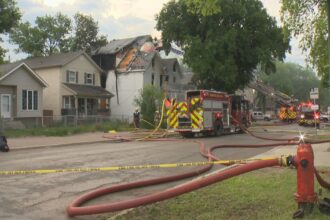As twilight settled over Maple Ridge last Thursday evening, more than 75 concerned parents, educators and community members filed into the Greg Moore Youth Centre, united by a growing unease about gang influence in their neighborhoods. The information session, organized by the Combined Forces Special Enforcement Unit of BC (CFSEU-BC), offered a rare glimpse into the sophisticated recruitment tactics criminal organizations deploy to lure local youth.
“They aren’t looking for the troublemakers anymore,” warned Sergeant Michael Sanchez, a veteran officer with CFSEU-BC’s Gang Intervention Team. “Today’s gangs target good kids—athletes, strong students, those with stable families—because they fly under the radar and have clean records to exploit.”
The packed room fell silent as Sanchez displayed photos of young men, many from middle-class backgrounds with no prior criminal histories, who were murdered in gang-related violence across the Lower Mainland. Their average age? Just 19 years old.
The preventative education session revealed how gang recruitment has evolved dramatically in recent years. Social media platforms have become prime hunting grounds, with recruiters often posing as romantic interests or offering seemingly innocent paid opportunities that gradually escalate to criminal activities.
“They promise quick money, status, and protection,” explained Linda Morgan, a youth outreach coordinator who partnered with CFSEU-BC for the presentation. “What they don’t advertise is the inevitable violence, trauma, and shortened life expectancy that accompanies gang involvement.”
Parents in attendance learned specific warning signs, including sudden cash flow, unexplained luxury items, secretive behavior about new friends, and abrupt personality changes. The session emphasized that Maple Ridge’s relative affordability within Metro Vancouver has made it increasingly attractive to criminal organizations seeking to establish new territory.
The CO24 News team spoke with several attendees who expressed surprise at learning that gang involvement crosses all socioeconomic boundaries. “I always thought this was someone else’s problem,” admitted Jennifer Hayes, mother of two teenagers. “Now I understand gangs actively recruit from every background and community—including ours.”
CFSEU-BC has intensified its prevention efforts in response to concerning trends in Canada showing gang affiliations forming at increasingly younger ages. The unit now offers these sessions at schools throughout British Columbia, starting with students as young as 10 years old.
“Early intervention is crucial,” Sanchez emphasized. “By the time someone reaches 16 or 17 and has already been groomed, it becomes exponentially harder to redirect their path.”
The session concluded with resources for parents, including confidential reporting mechanisms and support programs for youth showing early warning signs of gang involvement. CFSEU-BC announced additional sessions scheduled throughout the Fraser Valley in coming months, with dates to be posted on their website.
As communities across Metro Vancouver grapple with gang violence, the question remains: will preventative education be enough to counteract the sophisticated recruitment tactics targeting our most vulnerable youth, or do we need more comprehensive societal approaches to truly address the root causes drawing young people toward criminal organizations?


















